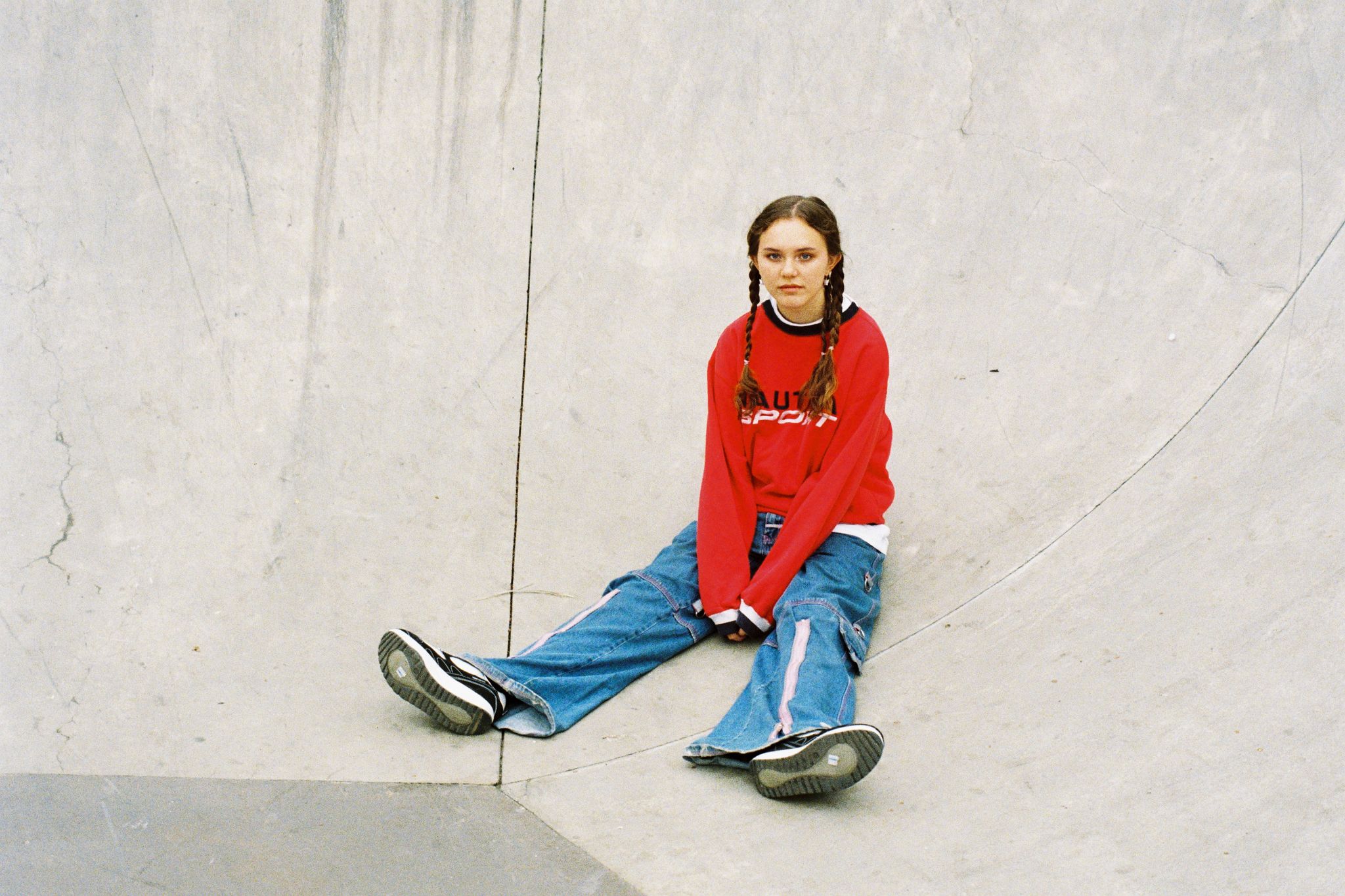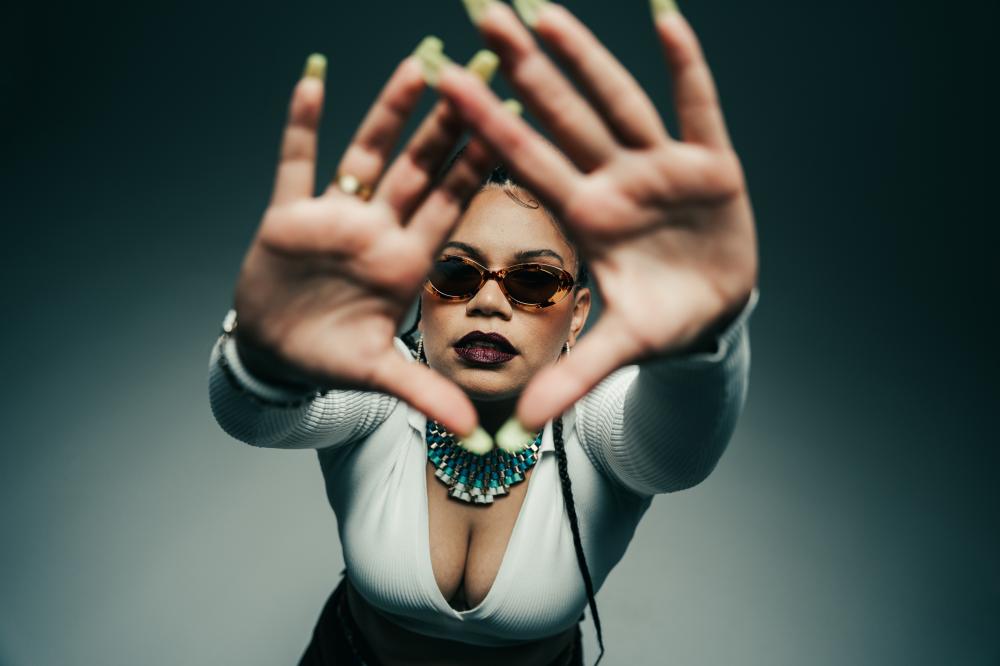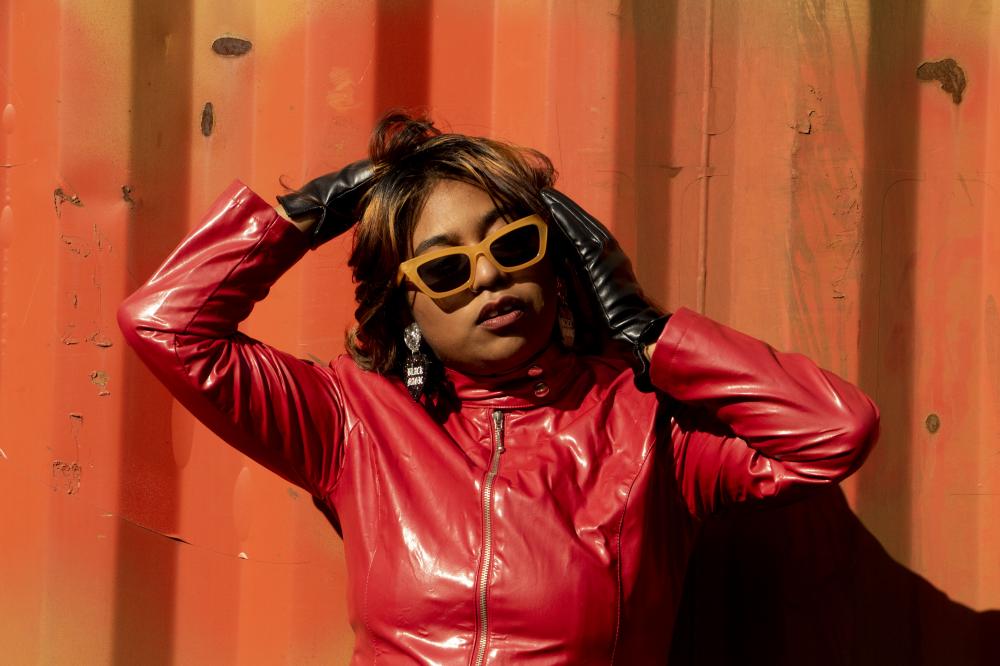Why are new-gen First Nations creatives rejecting the music industry for their own spaces?

Pictured: Sycco
The inaugural BLAKSOUND conference proved a collective articulation of First Nations empowerment, resistance, love and pain.
Over three days (September 6—8) of virtual conversations, workshops and performances – curated and driven by the new-gen – there was much positive future talk.
But one thread was dissatisfaction with the wider music industry.
It was accused of tokenism, institutionalised racism and a refusal to share power dynamics or acknowledge it’s part of the problem.
Brisbane-based multi-award winning Emily Wurramara, whose early life in the highly remote Groote Eylandt off the Northern Territory was fishing, camping, family gatherings and sacred ceremonies, admitted, “The music industry gave me mental issues”.
Alethea Beetson, founder of Digi Youth Arts which co-presented the event, asserted that music executives “who have the power to give the space and resources to our mob only got this power because they’re on stolen lands and their resources are from stolen wealth”.
Beetson’s upcoming PhD thesis looks at, among other things, how dismantling the music industry could change First Nations’ worldview.
“If you’re not going to give us our own space [in your organisations], we’ll create our own,” she challenged.
Some panels crunched options of how to get First Nations music out without having to deal with the mainstream industry, and setting up Black spaces with First Nations-friendly models.
The greatest anger was the industry’s continual inability or unwillingness to comprehend the vital importance of country to First Nations’ lives and music – the strength they get from their ancestors, and the tremendous responsibility they feel of carrying the torch of storylines from 80,000 years ago and now passing it on.
The keynote chat ‘From One Islander To Another’ between Christine Anu and Sycco underlined the importance of the link.
Anu spent her childhood in the Torres Strait Islands, engaged with the traditional music and island lifestyle, at seven fantasising there were cameras in the trees and flowers in the garden.
Sycco grew up in Brisbane, and it was only in high school she learned about a grandmother who hailed from the Torres Strait Islands.
She wants to visit as part of her healing and is excited about how it will affect her music.
“I haven’t been to country yet and I really want to,” she told Anu. “I have this pull because I know it’s going to a very spiritual and enhancing experience that I’ve never known.”
Anu, who had a hit with ‘My Island Home’, told her: “When you go, have no expectations. Just be ready to be filled, just be ready for your cup to be runneth over.
“It will be extraordinary in the way it will fill you up, with the way you can go into the world but always give back.”

Barkaa
In another instance, Sydney rapper Barkaa wrote her hits ‘For My Tittas’ and ‘King Brown’ about the strong women who helped her break her drink and ice addiction which had led to a prison stretch while pregnant with her third child.
“It’s hard to put in words how big that responsibility is, how important it is, and how honoured I am to be a voice for my people,” the Malyangapa, Barkindji woman said.
Wurramara, who sings in English and Anindilyakwa, explained to the non-Indigenous delegates: “When you’re in country, it’s more than singing to your family or your community, you are singing to your ancestors as well … to a lineage of ancients who wouldn’t have been able to do what you’re able to 50 years ago when we were still classed as flora and fauna.”
Rappers like Jimblah and Drmngnow who had moved to big cities to study or break into the biz, soon realised they had to return to country.
As a consequence Jimblah set up BLKMPIRE, which supports young Black music acts and video makers, and continues the activist work of his great grandmother Hilda Muir who was among those who successfully campaigned for an apology to the Stolen Generations.
“BLKMPIRE celebrates blackness, a space to back creative ecosystems which could run independently from wester spaces,” he outlined.
“We’re working with a lot of youth, many opening up to the possibilities we can do what we want.”
The priorities are to work out what is important to them as Indigenous people “so our spirit is in a good place”, to be family first, to be patient as they explore an evolving space, “and reconnect with country with things that are easy to forget when you are in colonial space”.
Drmngnow, aka Neil Morris, told TMN post-conference that the space he was setting up in Yorta Yorta country (near Shepparton, Victoria) is “a studio and workshop space for young people to create music in”.

Emily Wurramara
During the often-emotional ‘What Does It Mean to Be the Youngest Generation of the Oldest Surviving Culture in the World?’ panel, Wurramara and Barkaa threw down the gauntlet to festival promoters to pay proper respect to the people on whose land they were staging their events.
“You wouldn’t walk into a house without being invited,” Wurramara pointed out.
“It’s a privilege to be on someone’s community land and be involved in the mob, it’s not your right.”
The two outlined ways to show respect: invite the local elders to the show, always have a welcoming ceremony, give free tickets to local mobs and hire them to work on the event, and set aside a safe space where the elders can sit and talk collectively with artists from other nations.
Backstage areas should not have alcohol but serve juices, coffee and food plates, to make them safe spaces for artists.
For musicians currently struggling to cope with the impact of COVID, learn from First Nations colleagues who suffer trauma on a daily basis, they offered.
Wurramara said: “We come from this beautiful culture, of beautiful strong warriors, and here we are surviving, we do that every day.”

































